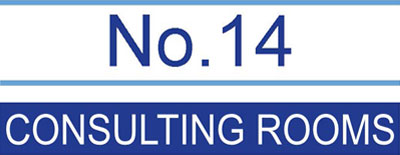Services
Number14 Consulting Rooms for Children and Young People aims to provide a comprehensive independent service that offers the assessment and treatment of a range of difficulties.
Our assessments and treatments are informed by evidenced based practice in accordance with NICE guidelines. Where necessary, and in line with NICE guidelines, our assessments are multidisciplinary.
This is the case for the assessment of neurodevelopmental difficulties. The psychological treatments that may be offered include Cognitive Behavioural Therapy, Behavioural Therapy, Interpersonal Therapy and EMDR (Rapid Eye Movement Desensitisation and Reprocessing).
Where appropriate associates from other disciplines such as family and speech and language therapy may be included in an assessment or treatment plan.
Medication
Depending on the assessed difficulty medication is sometimes appropriate and recommended; if this is the case a full explanation including pros and cons is discussed with the parents and young person to allow them to come to an informed decision about medication.
Lizzie and Liz see children and young people with the following types of difficulties.
Developmental Difficulties
Number14 Consulting Rooms for Children and Young People specialises in providing a comprehensive assessment and treatment of young people with suspected neurodevelopmental difficulties such as:
- Autistic Spectrum Disorders and Asperger's Syndrome
- Attention Deficit and Hyperactivity Disorder (ADHD, ADD)
- Tourette Syndrome and Tic Disorder
- The overlap between conditions
Our assessments are multidisciplinary and will, depending on the presenting difficulty, include a range of assessment methods both structured and semi structured. Information is obtained from parents/carers, the young person and, with parental permission, school and other services involved with the young person. The assessment would include a detailed history of early development and family history with a focus on social interaction and communication. The information from parents and school is used to gain an understanding about the young person across different settings.
Other assessments may need to be added when clinically important and they may include a detailed cognitive assessment of intellect and learning, speech and language or occupational therapy. We may in addition suggest a school observation.
Standardised Developmental Assessments
Used where there are concerns about a young person development, learning or attainment.
Anxiety and Depression
- Low mood, sadness and depression
- Anxiety, fears and phobias
- Self harm
Emotional and Behavioural problems
- Difficulties with adjustment
- Friendship problems
- Bereavement
- Problems with anger
- Stress and exams
- Temper tantrums
- Challenging Behaviour
- Obsessional and compulsive disorders
- OCD
- Body dysmorphia Syndromes
- Trichotillomania
- Compulsive skin picking
Eating Disorders
- Anorexia Nervosa
- Bulimia
Identity issues
- Gender
- Sexual
Paediatric conditions
The interplay with illness and emotional well being
- Chronic Fatigue
- Diabetes
- Chronic illness and injury
- Coping with medical procedures.
- Acquired brain injury
- Epilepsy
- Sleep/wakefulness difficulties
Post Traumatic Stress
Difficulties that result from:
- Accidents
- Illness
- Bullying
Toileting Problems:
- Bed Wetting
- Constipation
- Elimination problems
Addictive Behaviours
- Substance abuse
- Online gaming
- Internet addictions
Parenting Support
- Advice and guidance
- Behaviour Management of specific condition
- Helping children cope with change
